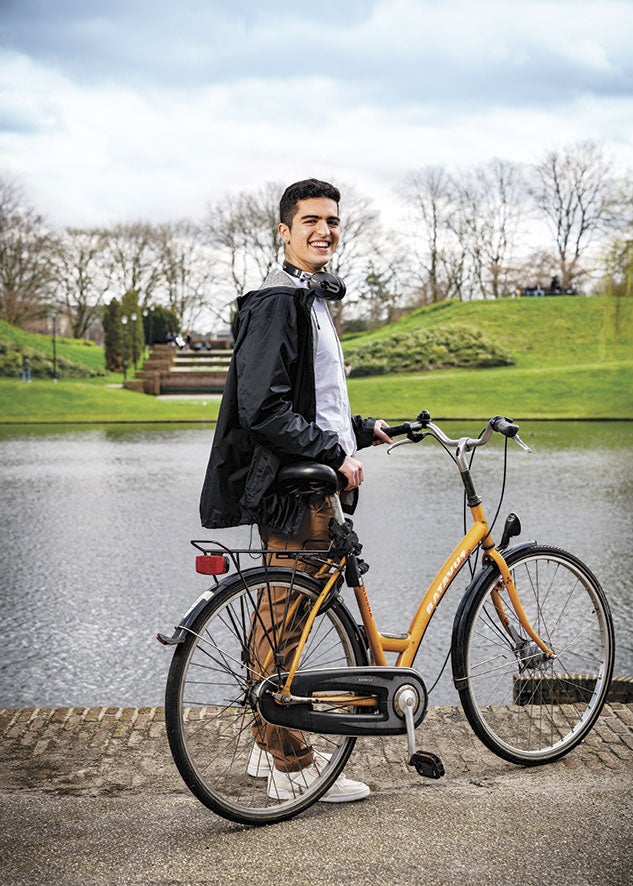Writing Home: Groeten uit Hilversum
During a Fulbright year, Mahdi Fariss ’19 turns teaching into learning.

Greetings from Hilversum, Netherlands.
It’s 7:53 a.m., but the Dutch sun has yet to show its face and very well may hide behind a gray blanket of clouds all day. As I trot down the steps of my apartment, I run through the English lessons I’ve prepared for the day. Having studied economics rather than English or education, my current role at De Wilge Primary School (grades three through six) has come with a steep learning curve. Fortunately, my students seem unphased by my lack of experience. With games like Simon Says or Telephone, I can challenge my students to improve their English listening and speaking skills without too much distress.
I half-successfully use my scarf to wipe rain droplets off my bike’s dilapidated seat, then open my phone to pick an album for today’s ride. Soon, “Flower Boy” by Tyler, the Creator pumps through my headphones as I begin the 10-minute commute to work. I know — listening to music while riding your bike through Houston is practically a death wish. Not so in Hilversum, a midsize city about 10 miles southeast of Amsterdam that boasts the widest, smoothest bike lanes I’ve ever had the pleasure of riding.
A progression of Tyler’s chords cascades flawlessly toward resolution, and I shake my head at the hours I’ve spent and will spend trying to emulate such seemingly effortless harmonies. Because my Fulbright scholarship requires that I work just 20 hours a week as a teaching assistant, my free time is spent behind my piano or guitar. It’s this freedom to explore myself as a multi-dimensional person that attracted me to the fellowship in the first place.
Arriving at a stoplight, I feel the gaze of the woman waiting before me and we make pregnant eye contact. Given well-documented prejudice against Moroccans in the Netherlands — which has motivated my research into whether reportedly high levels of student happiness here are consistent across students of all backgrounds — I often assume the worst of my white neighbors in situations like this one. I try to shake it off. Either we both just made unfair assessments of one another, or I did that alone.
The sun finally breaks over the horizon as I make my way through a park and into the city center. Direct sunlight is a rare treat these days, and it momentarily melts away any petty worries trudging through my mind.
I signal a right turn and roll over train tracks into the residential stretch leading to school. It’s at this point every morning that I remember what brought me to a faraway land where my sense of belonging — being an ethnic minority as well as an American with little Dutch proficiency — continues to be challenged. For the next five hours, I’ll work with a group of Dutch children to bridge the gaps of language and culture. For fleeting moments, without even realizing it, everything that makes us different will be dissolved by the pursuit of something unreasonably difficult — learning English.
UPDATE:
Since we last spoke with Mahdi, the Fulbright English Teaching Assistant (ETA) Programs have been suspended globally due to the COVID-19 pandemic. Mahdi has moved back to San Antonio to be with his family and is currently working on several projects regarding voter mobilization and improving diversity and inclusion in the Fulbright program. In the fall, Mahdi will move to Boston and start working as a non-profit consultant.
